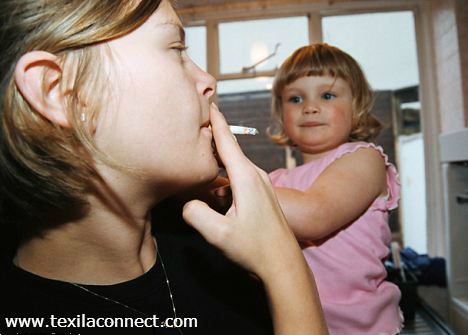Hospital statistics suggest that children exposed to secondhand smoke are significantly more likely to be readmitted within a year of being admitted for asthma, providing additional evidence that more efforts to limit exposure stand to alleviate a significant burden on public health.
Dr. Robert Kahn, a director at Cincinnati Children’s Hospital Medical Center and senior author of the new study, said in a press release that the alarming figures also illuminate a cost-effective way for pediatricians to fine-tune interventions and customize treatment for respiratory problems like asthma. By measuring levels of cotinine, the main breakdown product of nicotine, care providers will be able to spot a significant health factor in patients who may otherwise not report it.
“The ability to measure serum and salivary cotinine levels presents the possibility of an objective measure that can be obtained when a child is seen in the emergency department or in the hospital and may be used to predict future hospitalizations,” he explained. “Such a measure for exposure to tobacco smoke could be used to target specific interventions at caregivers of those children before discharge from the hospital. Several interventions, including parental counseling and contact with the primary care physician, could be adopted in clinical practice.”
Saliva Samples Don’t Lie
The study, which is published in the journal Pediatrics, is part of the Greater Cincinnati Asthma Risks Study — an exhaustive effort to map the causes of hospital readmission for pediatric asthma, particularly in minority and low-income children. Kahn and colleagues studied emergency room admission rates for children between ages 1 and 16 from August 2010 to October 2011. Readmission was defined as a return to the hospital with similar symptoms within a year of the first visit.
When the team compared readmission rates to the parent or caregiver’s own report of his or her tobacco use, there was no significant correlation between being exposed to secondhand smoke and returning to the hospital. However, when they analyzed cotinine content in saliva and blood samples, they found that children exposed to secondhand smoke were actually twice as likely to return. The findings thus show that this kind of tobacco exposure is indeed an important factor of pediatric asthma readmission. They also show that many parents and caregivers lie about their smoking habits, which is, arguably, an even larger concern.
Source: Medical daily


